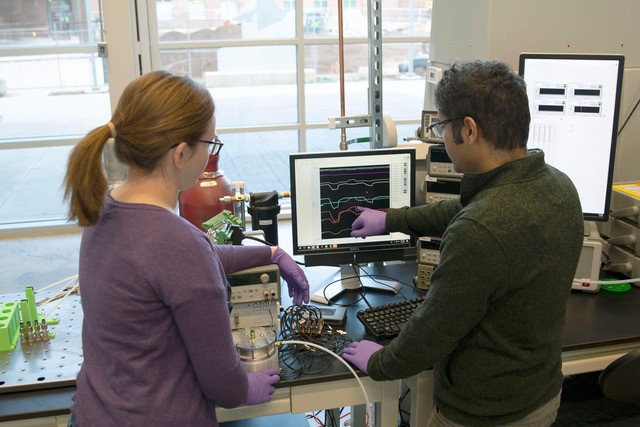Our test tells you which everyday chemicals you've recently come into contact with, and easy steps you can follow to reduce your exposure to them.
Can air pollution affect us whilst we’re at work?

We spend up to 90% of our time indoors so it makes sense that we might be exposed to airborne pollution at some point. Focus in the media is centred on outdoor air pollution and the harmful effects of the environment, but what is the real risk to our health from pollutants that lurk indoors?
The connection between inhaling tobacco fumes was firmly established decades ago but it took until 2007 for the legislation to catch up with the medical evidence to ensure that air in the places we work, eat, socialise, and meet is smoke free, cleaner, and safer.
More focus is being directed towards indoor as well as outdoor air quality, both inside our homes and places where we work.
As far back as 1987 the US Environment Protection Agency assessed indoor air quality and found that air pollution can be two to five times more concentrated indoors vs outside. The World Health Organisation reports that more than 2.5 million people die from health complications related to indoor air pollution. It’s a growing concern.
How safe is the air we breathe in offices?
In February 2019 researchers at Purdue University published findings of a study which involved the development of new sensors to monitor indoor air quality in office environments.
They were able to detect the presence of volatile organic compounds, or VOC’s using resonant sensors that vibrate when so called foreign compounds are detected in the air.
They found compound levels that were ten – twenty times higher than outdoors. They also discovered that compounds can remain present in a room long after the source has been removed, and that concentrations are increased when more people are in the room.
The researchers hope that one day this new technology could ultimately help to prevent health related complications from poor indoor air quality. By developing the new smoke detector like technology, it is possible that ventilation systems of the future could be adjusted to reduce levels of of potentially harmful compounds in office environments.
What can you do to improve indoor air quality?
At home, it’s relatively easy to improve the quality of indoor air by opening a window or using extractor fans to remove polluted air from cooking fumes. You can also restrict usage of household and personal care products that contain chemicals when used in more confined spaces.
But what can you do if you work in an office where you suspect your air quality might be a health issue? All employers are bound by health and safety regulations, but if you are concerned, the British Lung Foundation advises that you to speak to your health and safety representative to raise your concerns.
If you can, take a break and go for a walk in a green space area, or if you’re in a city, walk along quieter back streets to get some fresh air into your lungs.
For more information about air pollution and the effects it can have on our health please visit our air pollution section.
Image courtesy of Purdue University
Further reading
US Environment Protection Agency reoprt on indoor air quality